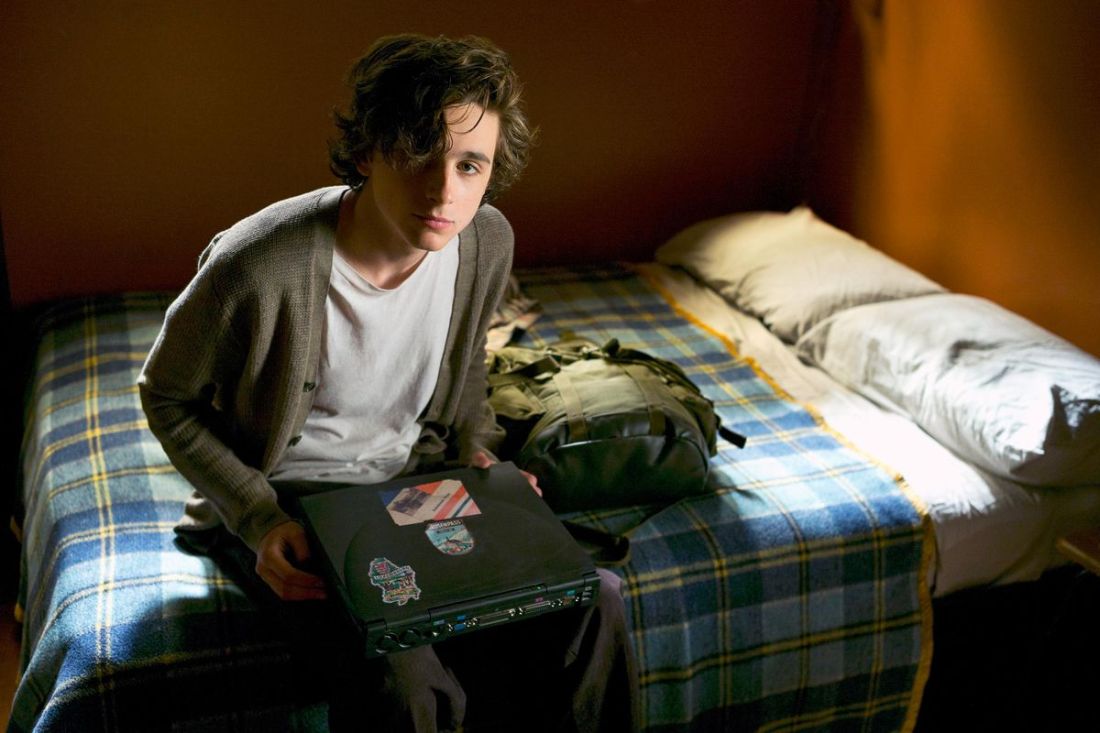‘Beautiful Boy’ directed by Felix Van Groeningen follows the life of Nicholas Sheff (Timothée Chalamet), a young man who deals with a serious and life-threatening meth addiction. Through this journey, we learn more about the failings of his treatments and the love his father has for his him. Everything seems like it’s in vain. Nothing works and all is hopeless. Because of this, the tragedy is stagnant. Nic is sad, emotional, on the brink of self-destruction throughout the entire film. His father, David Scheff (Steve Carrel) spends a lot of the film crying or on the brink of tears. Of course, they are struggling. But there must be more to it than that.
The beginning of the film shows David talking to a reporter about his son’s meth addiction but this never really connects to the plot of the rest of the movie. There are other moments like this that just get lost and never return. I wonder why they were there at all. I feel that time may be better used developing a multifaceted Nic. His writing for example. We know from the get-go that he loves to write. But why? What does writing do for him? It’s touched upon but I don’t think there was enough before his addiction peaks for Nic to fully understand him as a full person. He is obviously fortunate enough to come from a family with good enough finances to send him to college and pay for treatment after treatment for their son. Addiction can affect anyone, any kind of person, but I think it’s fair to say the way it affects Nic is different in some ways due to his privilege. The fact that is one type of story doesn’t take away from its merit, but I think the way it’s told merits questioning the structure of the narrative.
It was a cyclical film, always bouncing back to the very emotional and sobbing Chalamet. The same kinds of conflicts keep repeating themselves. David vs Vicki (Nic’s mother), Nic vs David, Nic vs himself. The dynamics were very low, and because of the constant high emotionality, I can’t say I was bored, but I grew tired. Addiction is a vicious cycle that I knew would never end in the scope of time this film had. The repetitive structure of it was justified because it showed the ability of Nic to endure, to pursue, even to live in spite of his illness. The music also added to this, with some retro hits by Bowie and Lennon and some very poignant instrumental numbers, I’d say the soundtrack is another aspect to enjoy to about this film.
That said my heart wasn’t warmed by the writing. “I love you more than everything,” lost its touch after too much hugging and touching between Chalamet and Carrel. I felt their love but I much preferred their complexity. That’s why I loved the diner scene. Nic and David sit in a diner after Nic returns from a relapse. David is desperate. He wants Nic to return home, to keep close and stay that way, but instead, Nic asks for two-hundred dollars. Of course, his father denies him, and he has an angry outburst that’s wisely charged with helplessness and fear more than actual anger.
I think the writing, acting, directing are all at their most intelligent here. We can see Nic physically trying to refrain from pushing his addiction at his father by asking for money, but knowing that it is impossible, that there’s no other way but to ask. This diner has been their special place, as seen in a flashback before this scene, but in this scene, their interaction is riddled with anger and confusion. It captures more than addiction here; the pangs of parent-child relationships as a child suffers or grows rings true as well. I think every parent in the theatre must have resonated with not understanding their teenager at some point or another. Every child must have felt this helpless, misunderstood, lost feeling that Chalamet portrays well.
In contrast to his, there are several occasions in the film where David talks to Nic and Nic begins to shed tears. There are several moments of continuous driving. There is a lot of driving in this movie. There is a lot of standing and looking out into the distance over a graciously poetic landscape. The moments Nic spends with his young step-siblings are heartwarming but always end in some kind of disappointment, again bringing the energy to a halt. There was barely a change in energy at all; these moments lacked coherency and justification. We know that Nic is fighting an internal battle but the dialogue between the characters is often not nuanced enough to actually develop their personalities.

The title of this post is neither a positive or negative comment on the film. There are some powerful scenes that I know will stay with me for a long time. But there are scenes I wish weren’t in the film. Everyone knows Steve Carrel and Timothée Chalamet are great actors but it’s only mostly Chalamet’s nuanced and balanced acting that saves the story. I realize and appreciate the reality of not only addiction but the factual basis of the Sheff family’s story. But that’s what it felt like to me, a very self-aware story. ‘Beautiful Boy’ is based on Nic Sheff’s memoir Tweak, Growing Up on Methamphetamines. This is his personal story. I feel that taking a story like this and translating it on-screen can simultaneously ruin and shed light on it. It sheds light on the fact that addiction can affect anyone, but it creates a one-note story of tears and repeated emotional volatility for the audience.
It’s important films like these get made, I just can’t wait for them to expand to include people of different social locations and more innovative narrative structures.